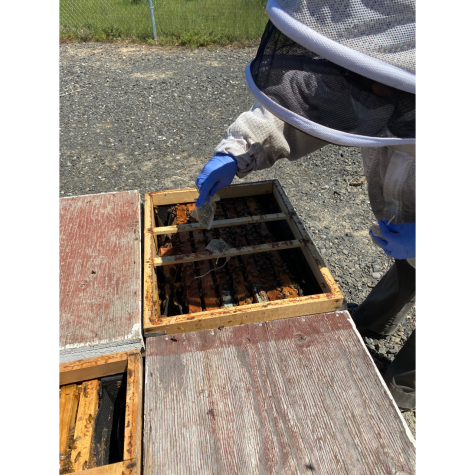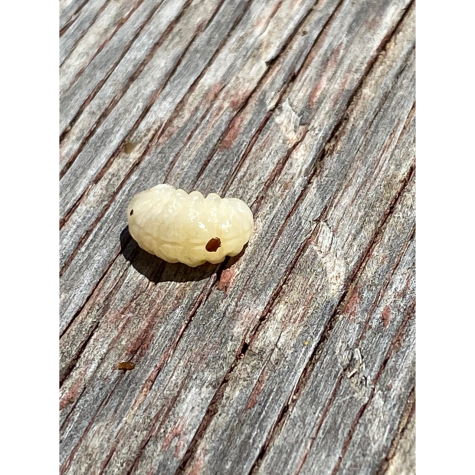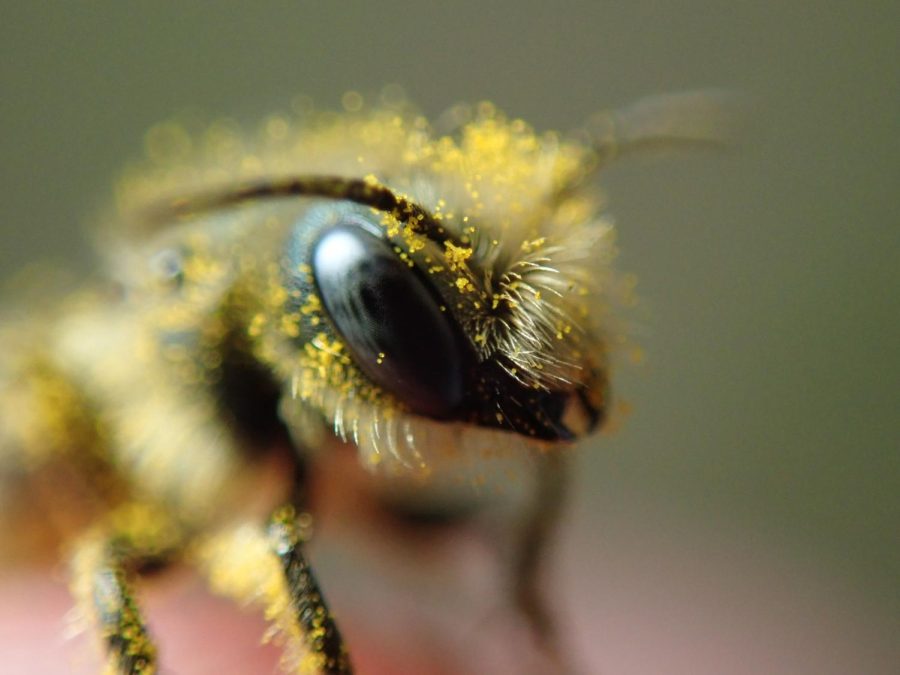WSU researchers are buzzing about honeybee colonies
The project examines bee colonies throughout the pollination season.
A bee covered in pollen in Yakima County, Wash., May 27th, 2022.
February 2, 2023
A WSU team is studying the operations and health of honeybee colonies throughout the pollination season to better aid growers and beekeepers, which will be completed in spring 2024.
The research project season and research project will begin in late February. Researchers will examine the effects of pesticides on colonies and the microbiome, along with the overall health of the colony, said Brandon Hopkins, Department of Entomology assistant research professor.
Colony inspections allow beekeepers to monitor bee colonies, collect data throughout the seasons and improve methods for beekeepers. Without bees, the cost of production to produce crops will go up.
“The worst case scenario is things do not change or continue on this path and become ever increasingly difficult to keep bees and provide adequate pollination services,” Hopkins said. “The cost of production to produce all these delicious fruits and vegetables can continue to go up because the cost of maintaining pollination services continues to increase and those costs get passed on to the consumers.”
He said increasing the knowledge of colony health, pesticides and parasites, along with other data useful in the subject can help keep commercial beekeepers stay in business. Otherwise, they are faced with a tough decision.
“The difficulty of staying in business as a commercial beekeeper gets more difficult as those beekeepers are faced with decisions of whether to take out multimillion-dollar loans or if they just throw in the towel because their losses are so high and so we lose a lot of them commercial beekeeping knowledge and experience as that number of operators continues to go down,” Hopkins said.
Researchers use bee samples to examine the colony health and the microbiome or the area in the gut. They take the bee samples and use very detailed observations to examine potential diseases or pests in the samples. Researchers also take pollen samples and send them off for pesticide analysis, he said.
“We have a set number of hives that are all tagged in the initial part of the season, and we go through and pull out every individual frame from those boxes,” Hopkins said. “[Then] we measure the number of frames of brood — the young developing bees — and the number of bees within each colony.”
Researchers track about 150 beehives from California to Washington. The bees were moved to California at the beginning of the month and researchers will fly to California to inspect the colonies and collect samples, said Ge Zhang, Department of Entomology Postdoctoral researcher.
The bees were moved to California for almond pollination, she said.
“The data, the location of those hives, and all that stuff are looked at together using various techniques to try to match or figure out certain environmental conditions and sample the conditions that might be impacting the health of the colony or the success of those times,” Hopkins said.

Bee samples are taken to examine the microbiome.
He said researchers take pollen and bee samples from the hive for further inspection. The pollen samples are taken to a lab for pesticide analysis. The bee samples are taken to examine the microbiome.
Researchers freeze some bee samples on dry ice to use for molecular analysis, a method used to look for viral diseases in the bees. Other bee samples are washed with rubbing alcohol to measure parasite loads, such as Varroa mites, Hopkins said.
Varroa mites, or Varroa destructor, is a tick that feeds on the fat bodies of bees. The parasite transmits diseases, feeds on and reproduces within the brood or the area in the hive where young bees develop. They make all the bees in the colony very sick, Hopkins said.

Other bee samples are washed with rubbing alcohol to measure parasite loads, such as Varroa mites.
Research at WSU began in spring 2021 and the project is in the middle stage, Zhang said.









